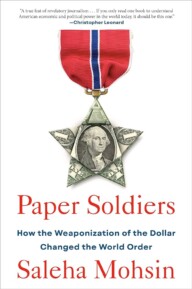German automotive industry at a crossroads
Kategoria: Business
A blog participant (Lyonwiss) recently made a comment about the general state of academic economics that was so “spot on” I wanted to share it more widely. I have of course followed the exact opposite of the conventional route to publishing success that Lyonwiss outlines here–and I’ve encountered the negative consequences he notes, of rejection by neoclassical referees and editors.
Here is Lyonwiss’s foolproof formula for publishing success in academic economics:
Academics wants to write research papers and have them published. University bureaucracies are not only bean counters, they are also paper counters. Promotion depends on the number of papers published. Publishing papers is not the same thing as actually doing research.
Having read far more economic papers that I care to admit, I have worked out the “secret” formula for achieving a voluminous publication record in the subject. The “recipe” for publication success is as follows.
Step 1: Cite the work of as many potential referees to your paper as possible, as this will soothe their egos and shows that you are one of them. Make sure that your paper is seen as merely an extension of the work of one of the gurus and you are not going to “rock the boat”, challenging the establishment.
Step 2: For the bulk of your paper, bamboozle your readers/referees with a complicated model or argument, making any assumptions you need (however unrealistic), because Milton Friedman has already covered you with his essay on “the methodology of positive economics”. If you have enough complexity in mathematics or argument, it is likely that the reader/referee will not bother to follow the heart of your paper in detail.
Step 3: It is vitally important that in your conclusions that you only make modest claims in supporting the status quo, such as eg the evidence or the model lends support to the efficient market hypothesis or globalization or whatever. Quite often, your conclusions do not have to follow from what you did in Step 2. Any strong conclusions, particularly when challenging the status quo, will lead a much closer scrutiny of your paper by the referee, who is taking a career risk in accepting your paper. As the additional effort is not personally rewarded, the economically rational action for the referee is to simply reject the paper.
This “recipe” leads to career success for many, as there are thousands of papers published by many economic professors who have made little difference to economics in any way which matters. The “Egg and Krug” paper is good example of the “recipe” in action. Reading between the lines in some of what Krugman wrote, I suggest that he appears to admit to playing such a game.
Academic collusion in partly causing the global financial crisis has been documented in the “Inside Job”, which won the recent Oscar for best documentary. Nothing really surprising there, but worth seeing nevertheless. The fraud involving academia is probably quite extensive, e.g. the recent resignation of Guttenberg, the German foreign minister. Full marks to Steve for fighting such an academic fraud.


